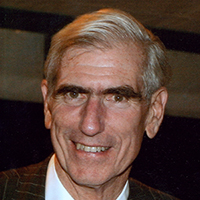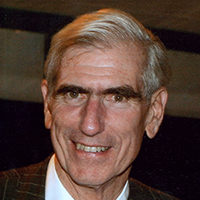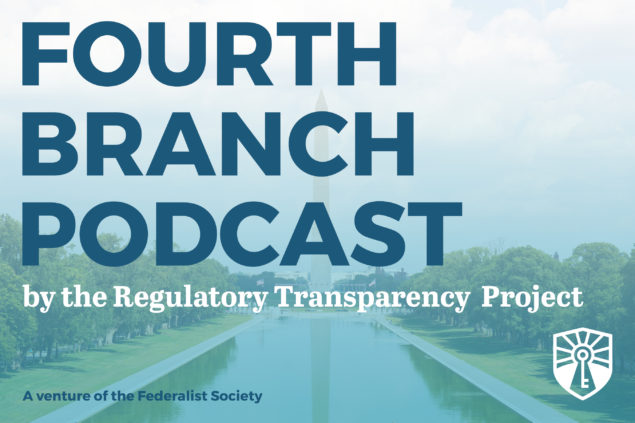C. Boyden Gray
Founding Partner
Boyden Gray & Associates

C. Boyden Gray
Founding Partner
Boyden Gray & Associates
Ambassador C. Boyden Gray is the founding partner of Boyden Gray & Associates, a law and strategy firm in Washington, D.C., focused on constitutional and regulatory issues.
Mr. Gray worked in the White House for twelve years, first as counsel to the Vice President during the Reagan administration and then as White House Counsel to President George H.W. Bush. In the Reagan administration, he was Counsel to the Presidential Task Force on Regulatory Relief, for which he wrote the original Executive Order 12291 requiring cost-benefit analysis and White House review of regulations (later renumbered as current EO 12866). In the George H.W. Bush Administration, Mr. Gray was in charge of judicial selection and was also instrumental in the enactment of the Clean Air Act Amendments of 1990, the Energy Policy Act of 1992, and a cap-and-trade system for acid rain emissions. In 1993, he received the Presidential Citizens Medal. Under President George W. Bush, Mr. Gray was U.S. Ambassador to the European Union and U.S. Special Envoy to Europe for Eurasian Energy.
Mr. Gray practiced law for 25 years at the law firm of Wilmer, Cutler & Pickering and was chairman of the Administrative Law and Regulatory Practice Section of the American Bar Association from 2000 to 2002. Early in his career, Mr. Gray helped to develop the Business Roundtable and served as its first counsel. He is an adjunct professor at Antonin Scalia Law School and a former adjunct professor at NYU Law School (teaching energy and environmental law). Mr. Gray is on the Board of Directors of the Atlantic Council, the Federalist Society, Reason Foundation, and the Trust for the National Mall.
Mr. Gray earned his A.B. magna cum laude from Harvard, where he was an editor of the Crimson, and his J.D. with high honors from the University of North Carolina at Chapel Hill, where he was editor-in-chief of the Law Review. Mr. Gray served in the United States Marine Corps, and after law school, he clerked for Earl Warren, Chief Justice of the United States Supreme Court.

A person listed as a contributor has spoken or otherwise participated in Regulatory Transparency Project events, publications, or multimedia presentations. A person's appearance on the website does not imply an endorsement or relationship between the person and the Regulatory Transparency Project. The Regulatory Transparency Project takes no position on particular legal or public policy issues. All expressions of opinion by a contributor are those of the contributor.
Contributions
Corporate Social Responsibility, Investment Strategy, and Liability Risks
A distinguished panel joins us to discuss a new paper that examines the legal implications of the rise of “ESG” investing.
Watch this videoDeep Dive Episode 200 – Corporate Social Responsibility, Investment Strategy, and Liability Risks
A distinguished panel joins us to discuss a new paper that examines the legal implications of the rise of “ESG” investing.
Listen to this podcast2018 JLEP Symposium: Creative Regulators and Environmental Protection
Government regulation is intended to improve the efficiency of markets and protect people from harms they cannot identify or prevent on their own. But, for decades, advocates have debated whether the regulatory process and rules developed through it are too strict or too lax; whether they properly account for all the things society values; and even whether they make society better or worse off on balance. The Journal of Law, Economics & Policy’s Symposium on Regulatory Reform, Transparency, and the Economy explored these and related questions as leading scholars and practitioners examined a number of recent regulatory proposals impacting a broad swath of the American economy – from banking and finance to energy and the environment, and from employment law to the internet economy. Speakers considered and debated how well these proposals would perform their intended functions and how they might be improved.
The symposium featured discussions of research papers prepared by experts working on the Federalist Society’s Regulatory Transparency Project. The proceedings of the Conference were published in a special symposium issue of George Mason’s Journal of Law, Economics & Policy.
Watch this videoDeep Dive Episode 23 – En Banc D.C. Circuit Upholds CFPB Constitutionality
Amb. C. Boyden Gray and Adam Gustafson (Boyden Gray & Associates) discuss the recent en banc decision in PHH v. CFPB, which considers the constitutionality of the CFPB, and whether the case is likely to reach the Supreme Court of the United States.
Listen to this podcastDeep Dive Episode 2 – Regulatory Transparency Project: What and Why?
Amb. C. Boyden Gray and Devon Westhill, discuss the Regulatory Transparency Project and the value of a robust public conversation about the benefits and costs of regulatory policies.
Listen to this podcast



